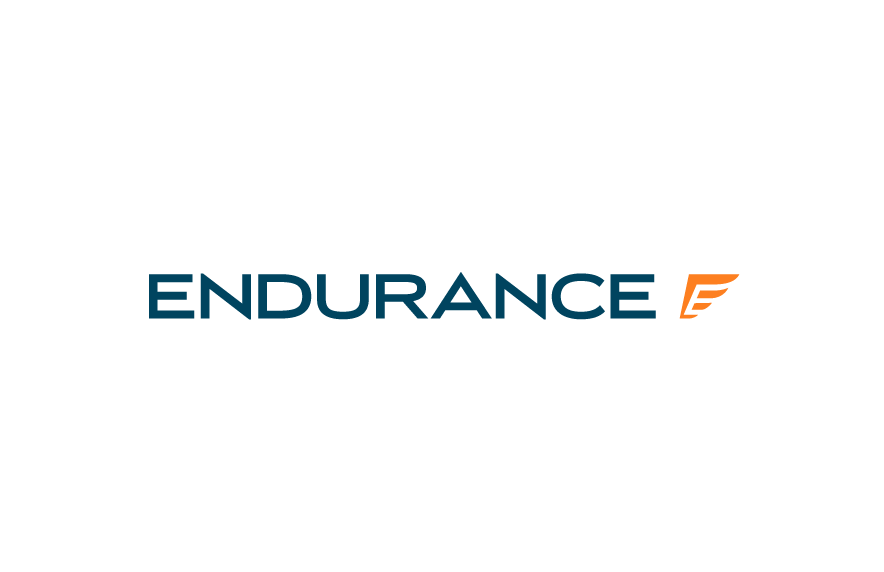With a third-party car warranty, a separate administrator (not the manufacturer) covers repairs under the contract. So is one worth having?
- Third-party auto warranty companies offer many different plans, from basic powertrain to factory-level protection.
- Third-party warranties have more flexibility in where you can go for repairs compared to factory plans.
- Most factory warranties may last up to 100,000 or 120,000 miles, while third-party plans can cover 200,000 or more.
Extended warranties often involve more than one company. There can be separate companies for selling the warranty, handling claims service, and paying the repair shop. In this article, we’ll break down what a third-party car warranty really is. We’ll also compare it to factory plans and recommend a few of the most reliable extended warranties to help you decide if one is right for you.
What Is a Third-Party Extended Warranty?
A third-party extended warranty is a warranty contract administered by an independent company, not a car brand like Hyundai or Ford. You can buy third-party warranties from warranty companies like Endurance and Carchex or from independent dealerships that sell their own plans.
To understand what a third-party warranty really is, let’s break down the terms administrator, obligor, third party, and broker.
What Is a Warranty Administrator?
The warranty administrator is the business entity responsible for managing claims service. It picks up the phone when the customer or mechanic calls about a repair. The administrator also decides whether a repair is covered under the contract terms.
Say your check engine light comes on and you need a new fuel rail. If you have a warranty, the repair shop will contact the administrator of your plan, and the administrator will decide if the breakdown falls within the scope of coverage. The administrator also provides customer service if there’s a disagreement about coverage.
What Is a Warranty Obligor?
The obligor is the entity responsible for paying for covered repairs. Even though you might not pay for a repair, the mechanic doesn’t work for free. So, the obligor is the one who writes the final check to cover whatever work was done.
Obligors are also backed by insurance companies. This is helpful because if a warranty company shuts down while your car is in the shop, you can seek compensation from the insurance company that backed it.
Note that the administrator and obligor can be the same company or they can be separate companies.
Our Top Pick
After reviewing 20 third-party companies, we’ve determined that Endurance is our preferred option for extended car warranties.
- Unlimited Miles for Cars Under 20 Years
- Maintenance Coverage Available
- Salvage or Rebuilt Cars Are Covered
- 24/7 Roadside Assistance
- Direct Administrator of Claims
What Is a Warranty Broker?
Besides administrators and obligors, there’s another entity to add to the mix: the warranty broker. Warranty brokers simply sell plans. They don’t manage claims approvals or pay for covered claims themselves.
Carchex is an example: it offers a variety of plans that are administered by American Auto Shield. So, you’d buy a Carchex plan, then work with American Auto Shield when you file a claim. Brokers can help out when coverage issues come up, but they don’t have the final say in what’s covered.
So What Does “Third Party” Mean in Extended Warranties?
The term “third party” refers to the administrator of the warranty. With a third-party plan, a separate company manages claims, not the manufacturer. Say you get an Endurance warranty for your Toyota and go to the dealership for repairs. The mechanic seeks approval from Endurance for covered repairs, not Toyota.
In the case of Endurance, the company actually sells, administers, and pays for claims. So Endurance is its own obligor. This type of arrangement can make customer service a bit faster if you have a problem with a claim.
3rd-Party vs. Manufacturer Extended Warranties
| Factor | Manufacturer Plan | Third-Party Plan |
|---|---|---|
| Repair shop network | Branded dealerships only in most cases | Any ASE-certified mechanic including dealerships |
| Length of warranty | Most last up to 100,000 or 120,000 miles on the odometer | Can cover 200,000, 300,000, or more miles on the odometer |
| Coverage options | Typically one to three options | Typically three to five or six options |
| OEM parts and service | Guaranteed | Possible but not guaranteed |
| Cost | Typically more expensive per year of coverage | Typically less expensive per year of coverage |
| Benefits | Often comes with roadside assistance, rental car, trip interruption | Often comes with roadside assistance, rental car, trip interruption |
Some Manufacturers Use Third-Party Administrators
The tricky thing is that some car brands actually use third-party administrators to handle their extended warranties, even though the plan is branded as a factory warranty. For example, the GMC Protection Plan is administered by Safe-Guard Products International, while GM is the obligor. So, Safe-Guard handles the claims service, and GM pays for the repair.
What Do Third-Party Warranties Cover?
Third-party warranties can offer coverage similar to extended warranties sold by the manufacturer. Generally speaking, coverage ranges from powertrain to bumper-to-bumper plans.
- Bumper-to-bumper: This type of plan covers almost any repair except for exclusions, and it closely matches factory-level coverage. Toco’s Orange plan is an example.
- Mid-level: There are many mid-level plan variations. These cover the powertrain plus things like air conditioning, steering, brakes, suspension, and electrical. Endurance’s Superior plan is a high-level plan in this category.
- Powertrain: Powertrain plans cover the engine, transmission, and drive axle. They can also include turbochargers and seals/gaskets. Autopom!’s Powertrain Essentials is an example, though it also includes some A/C and electrical parts.
Most third-party warranty companies also provide benefits like:
- Roadside assistance
- Rental car reimbursement
- Trip interruption reimbursement
Is a Third-Party Car Warranty Worth It?
A third-party auto warranty is often worth it if your car is aging and you want a safety net for covering many repairs. That said, a plan isn’t necessarily always worth it. If you have a very reliable car or a decent savings account for repairs, you might not need one. Whether a plan is worth it depends on the reliability of your vehicle, the cost of the plan, what it covers, and your financial situation.
Thinking about vehicle reliability, you can use resources like J.D. Power and RepairPal to estimate the likelihood and severity of repairs for your car. For example, RepairPal’s reliability ratings rank the top five most reliable brands as:
- Honda
- Acura
- Kia
- Hyundai
- Mazda
You might be less likely to use an extended warranty on these brands. That said, the warranty can also be cheaper than one for other car brands. Plus, modern vehicles have a lot of high-tech components that can fail even a few years down the road.
Third-Party Auto Warranty Pros and Cons
| Pros | Cons |
|---|---|
| Third-party plans can cover cars well beyond 100,000 miles | Not all companies are reputable, so you have to do some research |
| You can visit any ASE-certified mechanic, not just dealerships | Third-party plans don’t guarantee OEM repairs or factory technicians |
| You can pick from a wide range of coverage options to customize the plan and your budget | Warranty contracts are crucial to read but can be hard to understand |
Choosing a Third-Party Warranty Company
When you shop around, keep a few things in mind to find reliable coverage:
- Look for companies that have positive BBB ratings and score well on Google and Trustpilot
- Verify the repair shop network includes all ASE-licensed mechanics (not just a specific dealer)
- Find a sample contract and read it to understand all the exclusions
- Look for companies that have a smooth claims process and pay the repair shop directly
How Much Does a Third-Party Warranty Cost?
Having sampled quotes from a number of popular extended warranty companies, we found the average plan costs about $129 per month. Total costs can range from about $2,700 to over $6,000. What you pay depends on the vehicle, plan type, duration, average repair costs in the market, and the company.
Your car’s specific model repair costs can influence the price. If the company expects to pay out more, it’ll charge more for a plan. For example, an extended warranty for a BMW sedan will cost more than a plan for a Honda Civic of the same mileage.
Dealership warranties often cost more than third-party plans. Individual dealers often mark up the price by different amounts, so you might find a different price if you call a dealer across town.
Best Third-Party Car Warranty Companies
Endurance
Endurance is a longstanding warranty provider with a solid reputation (rated A on the BBB) and a wide range of coverage options. It’s one of the few companies that offers unlimited mileage on vehicles up to 20 years old. In addition to standard plans, Endurance offers an Advantage plan that includes maintenance services along with breakdown coverage.
One more thing to note is that Endurance is a direct warranty provider, not a broker. So you only work with Endurance from shopping to filing a claim.
Toco
Toco offers four plans with a unique structure. You get the Green plan up to 100,000 miles, which is like a factory-level warranty. Every 50,000-mile increment after that, the plan changes and covers slightly fewer components until 250,000 miles, when it expires. The nice thing is your monthly rate stays the same from year to year, even though the likelihood of repairs increases.
Everything Breaks
Our third pick for a third-party warranty provider is Everything Breaks. Like Toco, Everything Breaks can cover up to 250,000 miles depending on the plan. We think Everything Breaks is a good option for older cars since it has a Critical Care plan, which is affordable and simply covers a set portion of the repair cost.
Our Top Pick
After reviewing 20 companies, we’ve determined that Endurance is our preferred option for extended car warranties.
- Unlimited Miles for Cars Under 20 Years
- Maintenance Coverage Available
- Salvage or Rebuilt Cars Are Covered
- 24/7 Roadside Assistance
- Direct Administrator of Claims
What To Watch Out For
Unfortunately, not all companies in the warranty industry are reputable. Warranty scams do exist, so be careful when reading mailers that say your car’s warranty is about to expire (it probably did a while ago, anyway).
Besides scams, some companies have a habit of denying repairs. This is why it’s important to look into the customer service reputation of each provider you consider. Make sure you understand the cancellation process and refund policies. Ideally, you’d want to read a full sample contract before buying a plan to understand all the exclusions.
Compare Our Reviews of Third-Party Car Warranties
Below, you can find detailed third-party warranty reviews of various providers. If you’re shopping for a plan, take some time to compare customer service reputation, coverage, benefits, and costs of different providers.
| Company Review | Number of Plans | Maximum Mileage |
|---|---|---|
| Endurance Review | 6 | 300,000 on some plans, unlimited on others |
| Toco Review | 4 | 250,000 |
| Everything Breaks Review | 5 | 250,000 |
| Autopom! Review | 3 | Can start coverage with up to 150,000 miles |
| Olive Review | 3 | 185,000 |
| Fair Review | 3 | Can start coverage with up to 150,000 miles |
| American Dream Auto Protect Review | 3 | 200,000 |
Third-Party Car Warranty: Recap
Third-Party Extended Warranty: FAQ
Below are a few frequently asked questions about used vehicle warranties:
How We Rank Extended Warranty Providers
We take a methodical approach to rating warranty companies. Here’s what that includes:
- Coverage: We consider things like the number of plans, mileage limit, maintenance coverage options, and added benefits to score companies in this area.
- Cost and buying experience: We get quotes from providers and pay attention to the experience with customer service. We also consider a company’s transparency during the buying process through sample contracts and clear coverage descriptions.
- Reputation: This category includes a company’s longevity plus its rating on the BBB and whether or not it has BBB accreditation.
- Customer service: To rate customer service, we look at BBB customer ratings plus Trustpilot scores. We also note whether the company is a direct warranty provider.
Advertiser Disclosure: Consumer Review Center might earn compensation from the companies featured on this page. This compensation could affect the placement, order, and visibility of products, but it does not affect the recommendations made by the editorial team. Not every company, product, or offer has been reviewed.
Related Resources

Third-Party Car Warranty Guide
Advertiser Disclosure With a third-party car warranty, a separate administrator (not the manufacturer) covers repairs under the contract. So is one worth having? Third-party auto

Does a Car Warranty Come With 24/7 Roadside Assistance?
Car warranties have 24/7 roadside assistance in most cases, but there can be limits to usage amount and frequency.

Used Vehicle Warranty Guide
A used vehicle warranty protects your car by covering selected repair costs and can cost between $2,000 and $6,000 on average.








